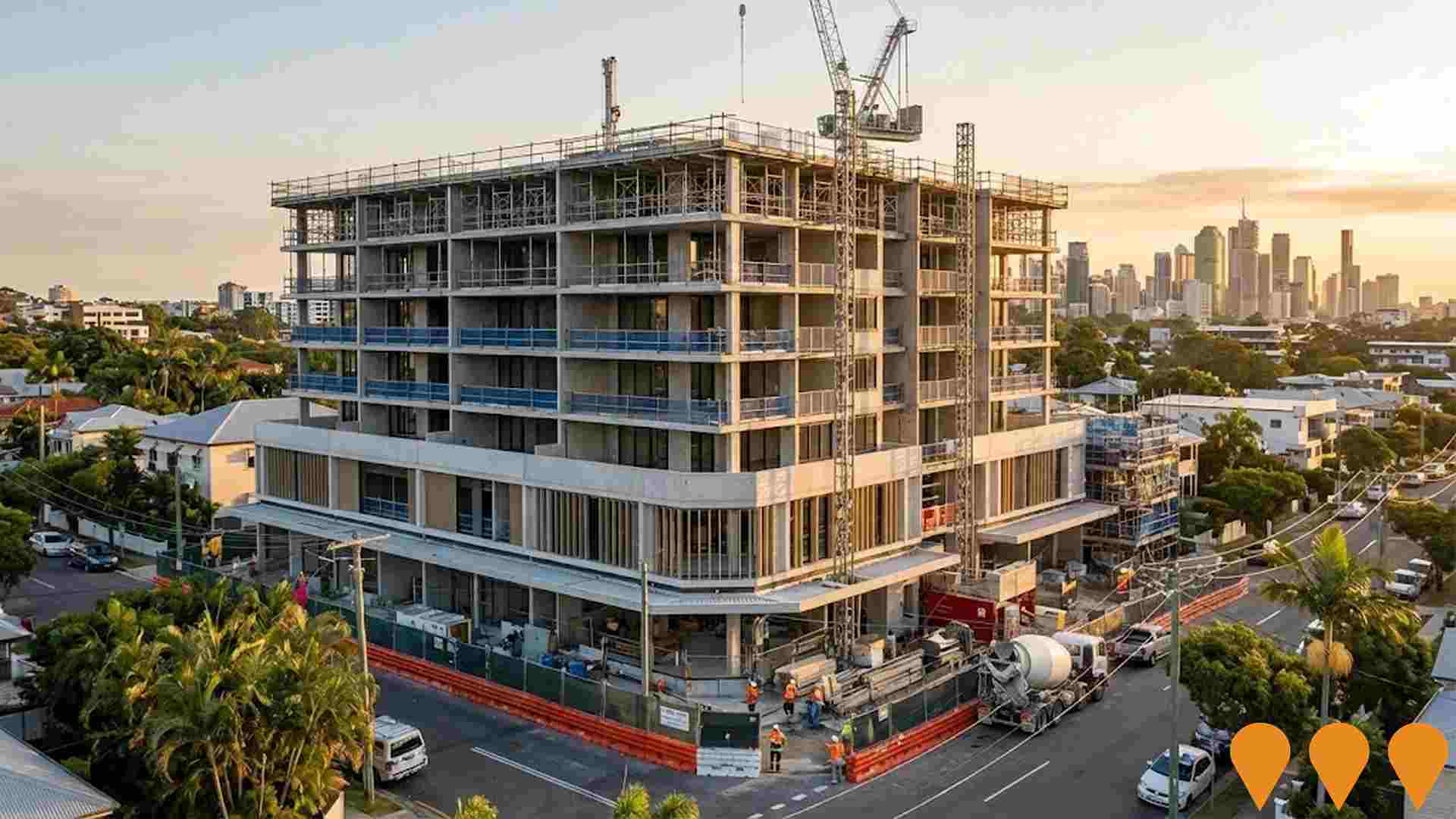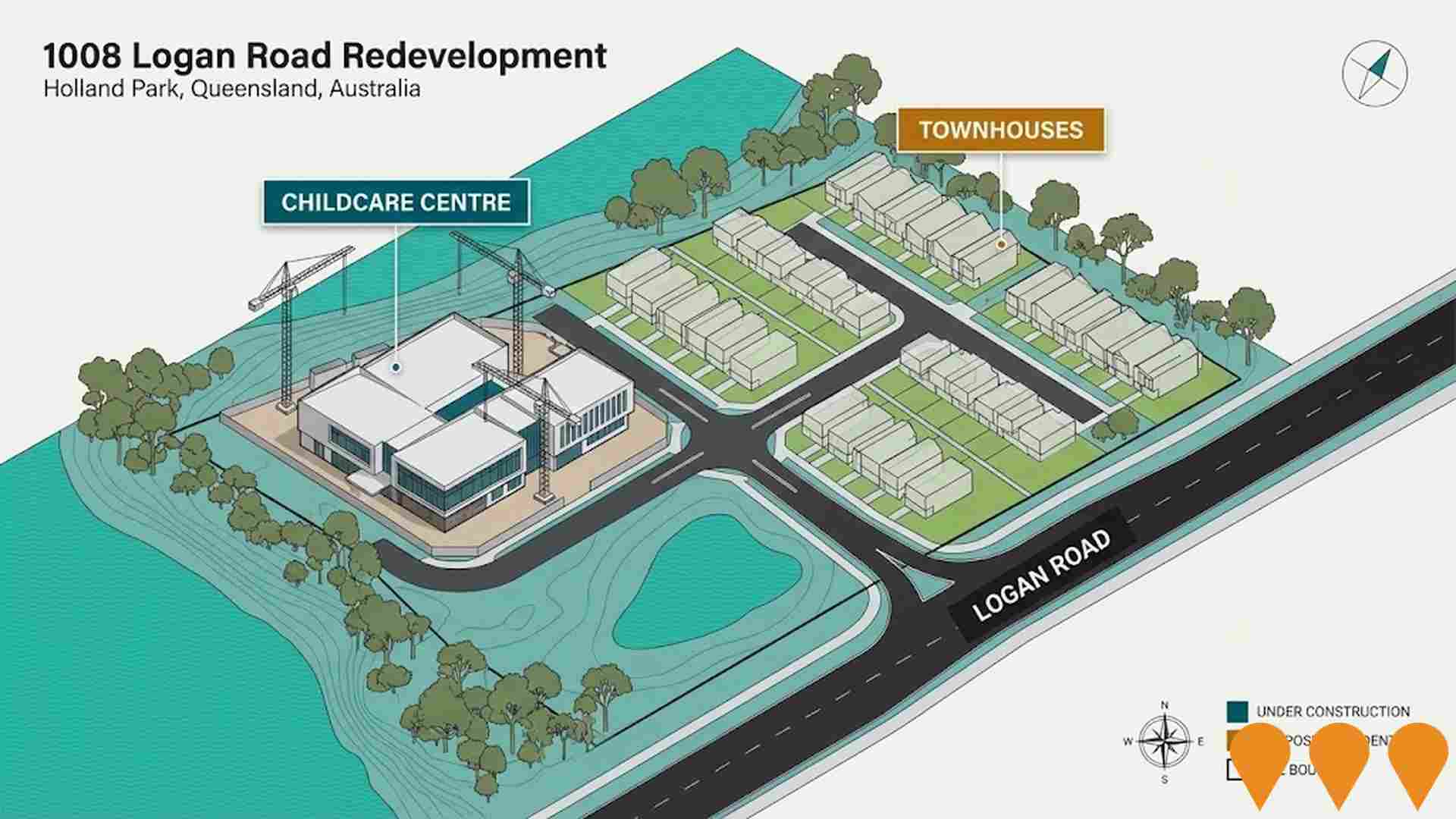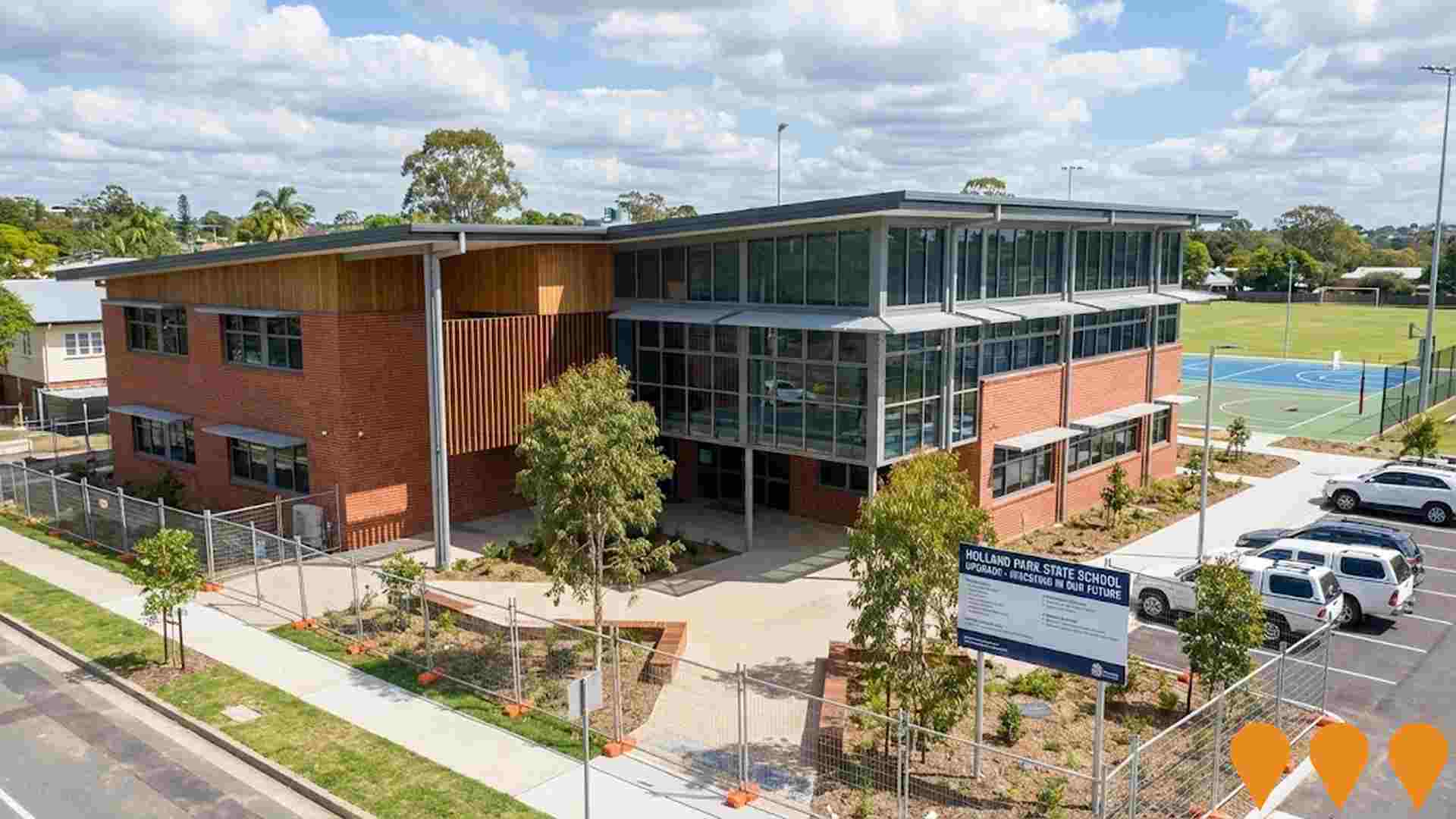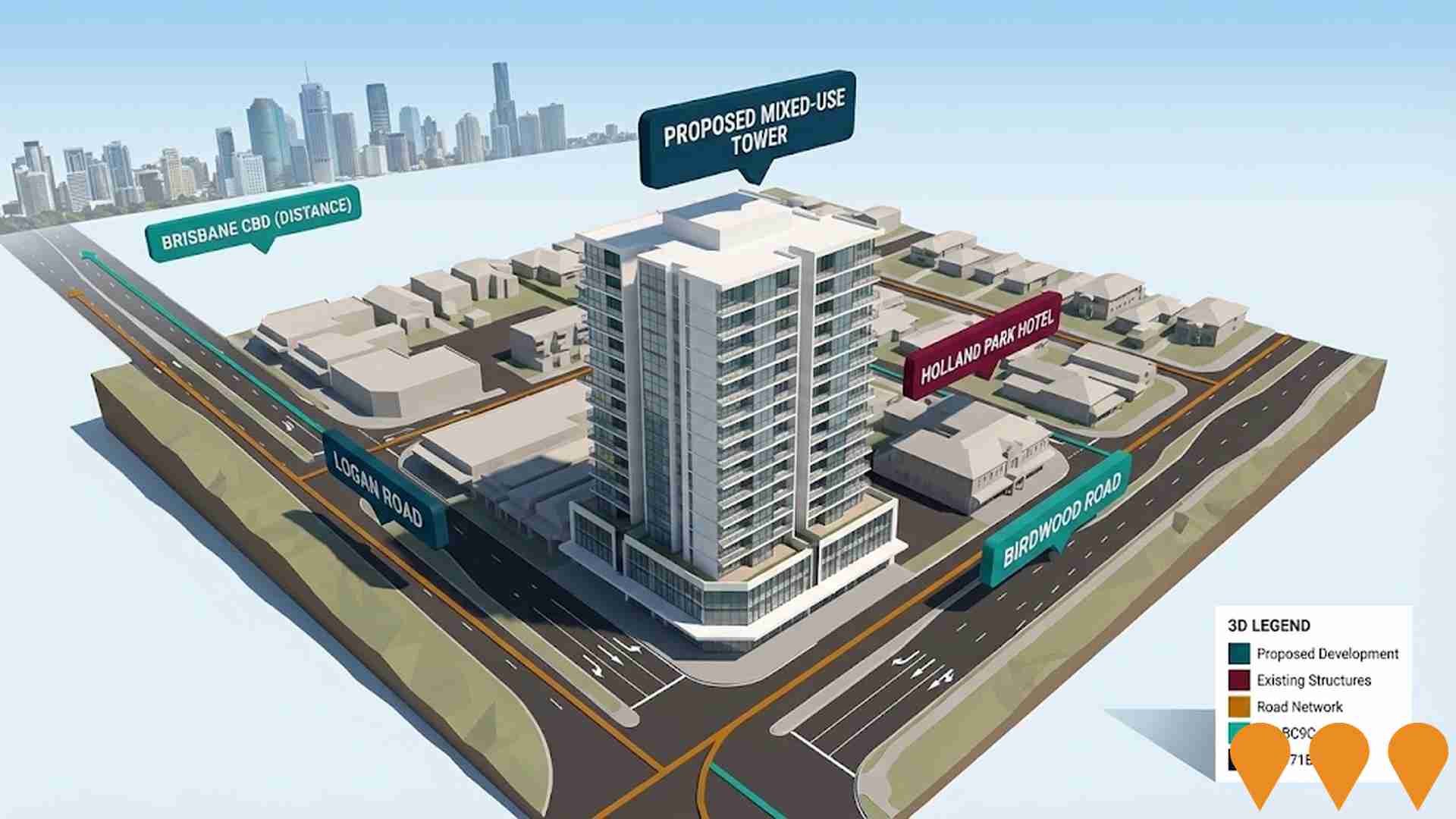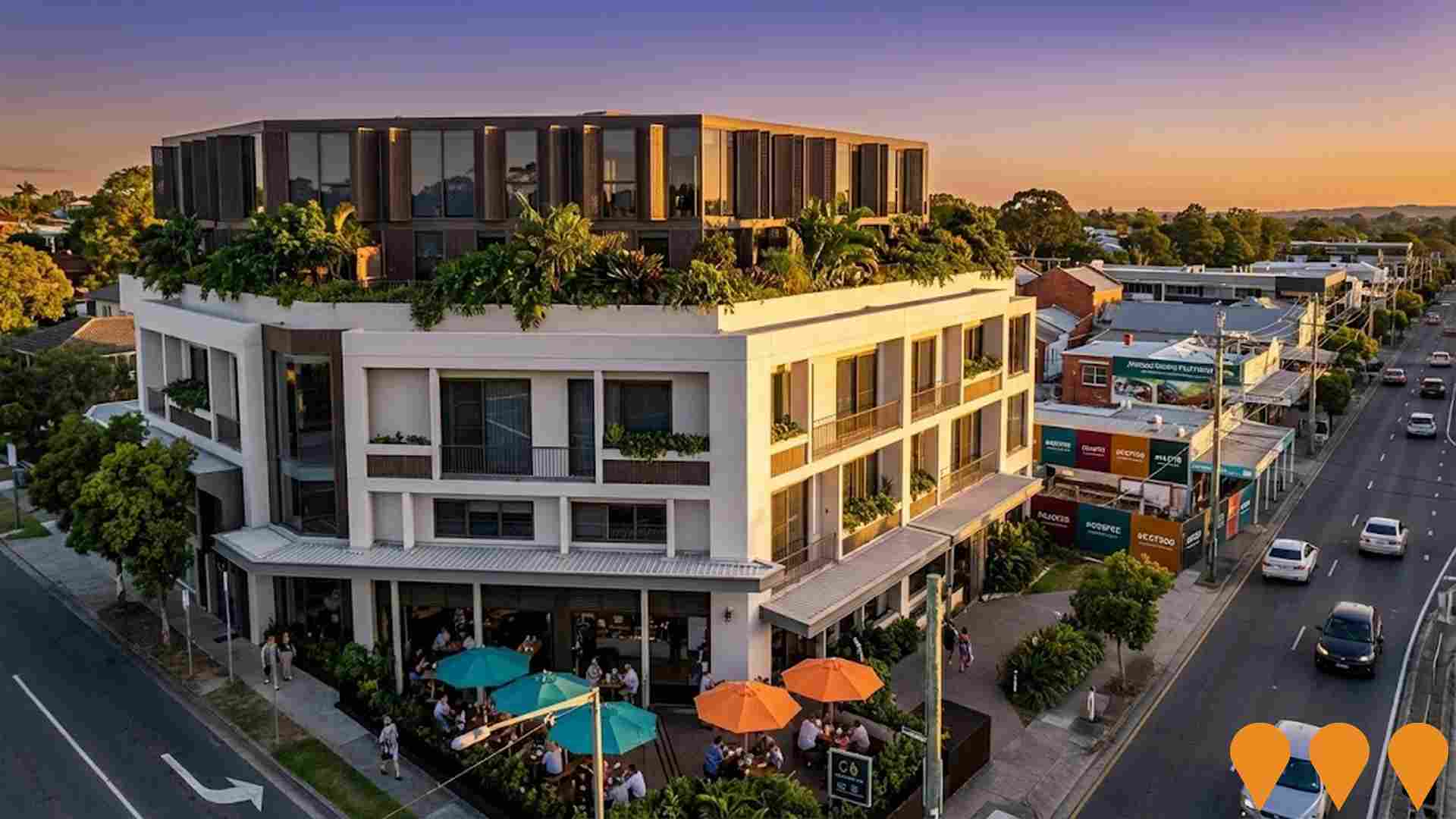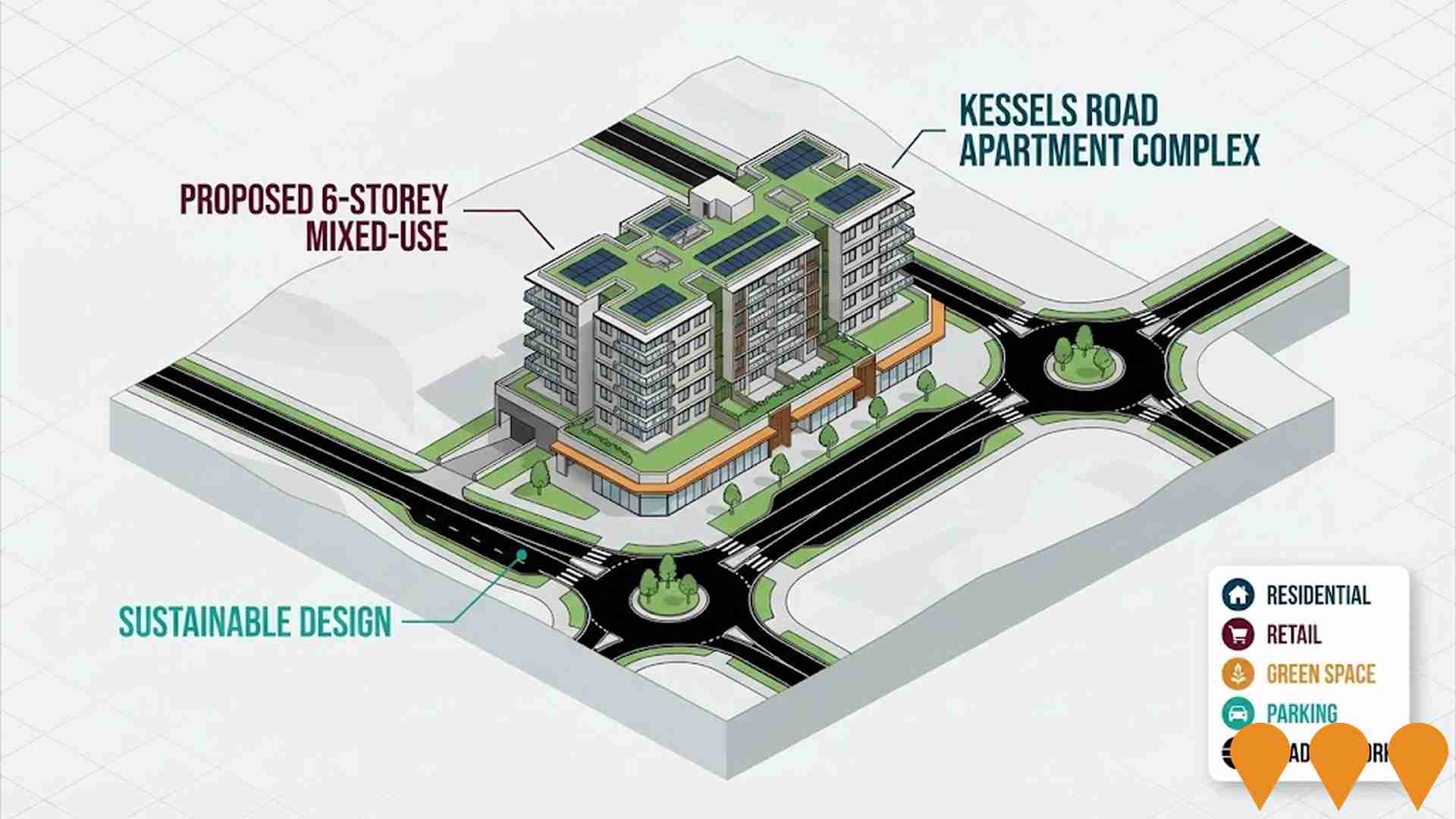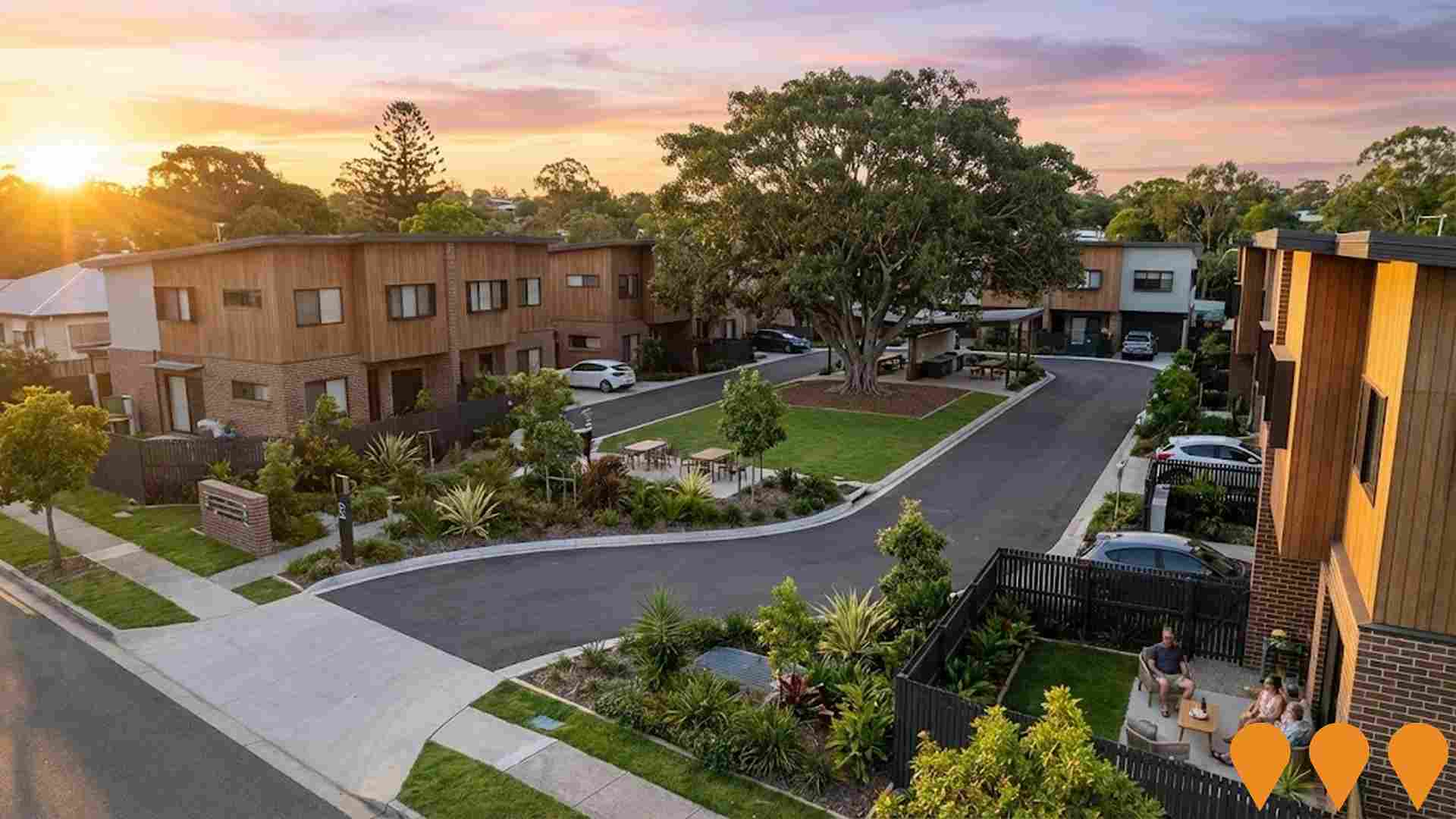Chart Color Schemes
This analysis uses ABS Statistical Areas Level 2 (SA2) boundaries, which can materially differ from Suburbs and Localities (SAL) even when sharing similar names.
SA2 boundaries are defined by the Australian Bureau of Statistics and are designed to represent communities for statistical reporting (e.g., census and ERP).
Suburbs and Localities (SAL) represent commonly-used suburb/locality names (postal-style areas) and may use different geographic boundaries. For comprehensive analysis, consider reviewing both boundary types if available.
est. as @ -- *
ABS ERP | -- people | --
2021 Census | -- people
Sales Activity
Curious about local property values? Filter the chart to assess the volume and appreciation (including resales) trends and regional comparisons, or scroll to the map below view this information at an individual property level.
Find a Recent Sale
Sales Detail
Population
Holland Park West is positioned among the lower quartile of areas assessed nationally for population growth based on AreaSearch's assessment of recent, and medium term trends
As of November 2025, Holland Park West's population is approximately 6,746. This figure represents an increase of 327 people since the 2021 Census, which reported a population of 6,419. The growth from June 2024 to November 2025 is inferred from ABS data showing an estimated resident population of 6,739 and 19 additional validated new addresses. This results in a population density ratio of 2,624 persons per square kilometer, placing Holland Park West in the upper quartile relative to national locations assessed by AreaSearch. The primary driver of population growth was overseas migration, contributing approximately 57.8% of overall population gains during recent periods.
AreaSearch uses ABS/Geoscience Australia projections for each SA2 area released in 2024 with a base year of 2022. For areas not covered by this data and years post-2032, Queensland State Government's SA2 area projections released in 2023 based on 2021 data are adopted. However, these state projections do not provide age category splits; therefore, AreaSearch applies proportional growth weightings in line with ABS Greater Capital Region projections released in 2023 and based on 2022 data for each age cohort. Future population trends suggest lower quartile growth of national statistical areas, with Holland Park West expected to increase by 165 persons to reach a total population of approximately 7,011 by the year 2041, reflecting an overall increase of 2.3% over the 17-year period from 2024 to 2041.
Frequently Asked Questions - Population
Development
Residential development activity is lower than average in Holland Park West according to AreaSearch's national comparison of local real estate markets
Holland Park West has had approximately 21 dwelling approvals annually over the past five financial years, totalling 106 homes. In FY-26 so far, 8 approvals have been recorded. The average new residents per year per dwelling constructed from FY-21 to FY-25 was 1.2, indicating balanced supply and demand, but this has increased to 5.3 people per dwelling over the past two years due to growing popularity. New properties are constructed at an average expected cost of $546,000, targeting the premium segment. This year, $5.6 million in commercial approvals have been registered, showing limited commercial development focus compared to Greater Brisbane, where Holland Park West has 55.0% less development activity per person.
This scarcity typically strengthens demand and prices for existing properties. The area's new developments consist of 85.0% detached dwellings and 15.0% townhouses or apartments, maintaining its suburban identity with a concentration of family homes. As of now, there are approximately 363 people per dwelling approval in the location. Future projections estimate Holland Park West to add 158 residents by 2041, suggesting that current construction levels should meet demand adequately and create favourable conditions for buyers while potentially enabling growth exceeding current forecasts.
Future projections show Holland Park West adding 158 residents by 2041 (from the latest AreaSearch quarterly estimate). With current construction levels, housing supply should adequately meet demand, creating favourable conditions for buyers while potentially enabling growth that exceeds current forecasts.
Frequently Asked Questions - Development
Infrastructure
Holland Park West has very high levels of nearby infrastructure activity, ranking in the top 20% nationally
Twenty-eight projects have been identified by AreaSearch as potentially impacting the area. Key projects include 1008 Logan Road Redevelopment (Childcare + Townhouses), Queensland Tennis Centre Upgrade, Cross River Rail - Moorooka Station Upgrade, and Brisbane Metro - Eight Mile Plains to Roma Street. The following list details those likely most relevant.
Professional plan users can use the search below to filter and access additional projects.
INFRASTRUCTURE SEARCH
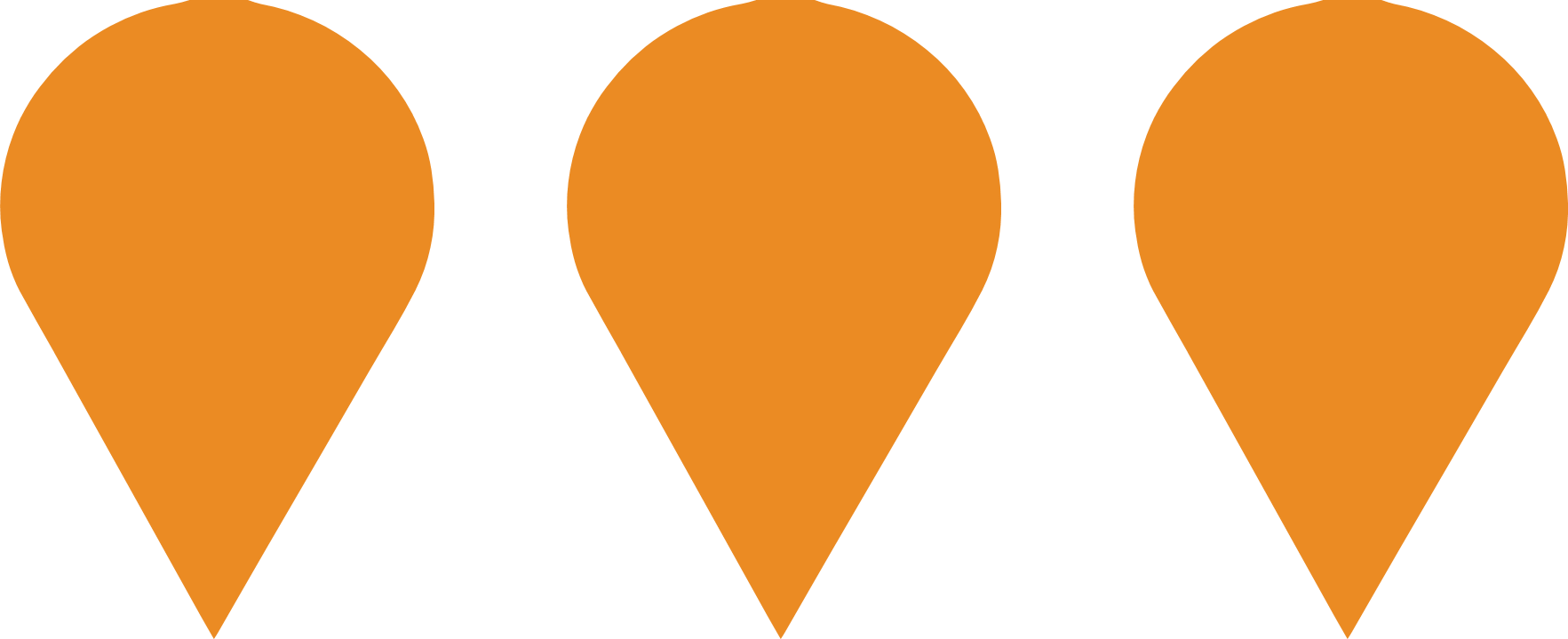 Denotes AI-based impression for illustrative purposes only, not to be taken as definitive under any circumstances. Please follow links and conduct other investigations from the project's source for actual imagery. Developers and project owners wishing us to use original imagery please Contact Us and we will do so.
Denotes AI-based impression for illustrative purposes only, not to be taken as definitive under any circumstances. Please follow links and conduct other investigations from the project's source for actual imagery. Developers and project owners wishing us to use original imagery please Contact Us and we will do so.
Frequently Asked Questions - Infrastructure
Greenslopes Private Hospital Master Plan Redevelopment
Long term multi stage campus wide redevelopment of Greenslopes Private Hospital, Ramsay Health Care's flagship tertiary teaching hospital in Brisbane. The master plan program includes a new clinical services and infill building, additional operating theatres, expanded intensive care and day surgery capacity, refurbished emergency department and new inpatient wards, delivered through a series of major expansion projects including the recently completed $70m plus infill and theatre expansion stages.
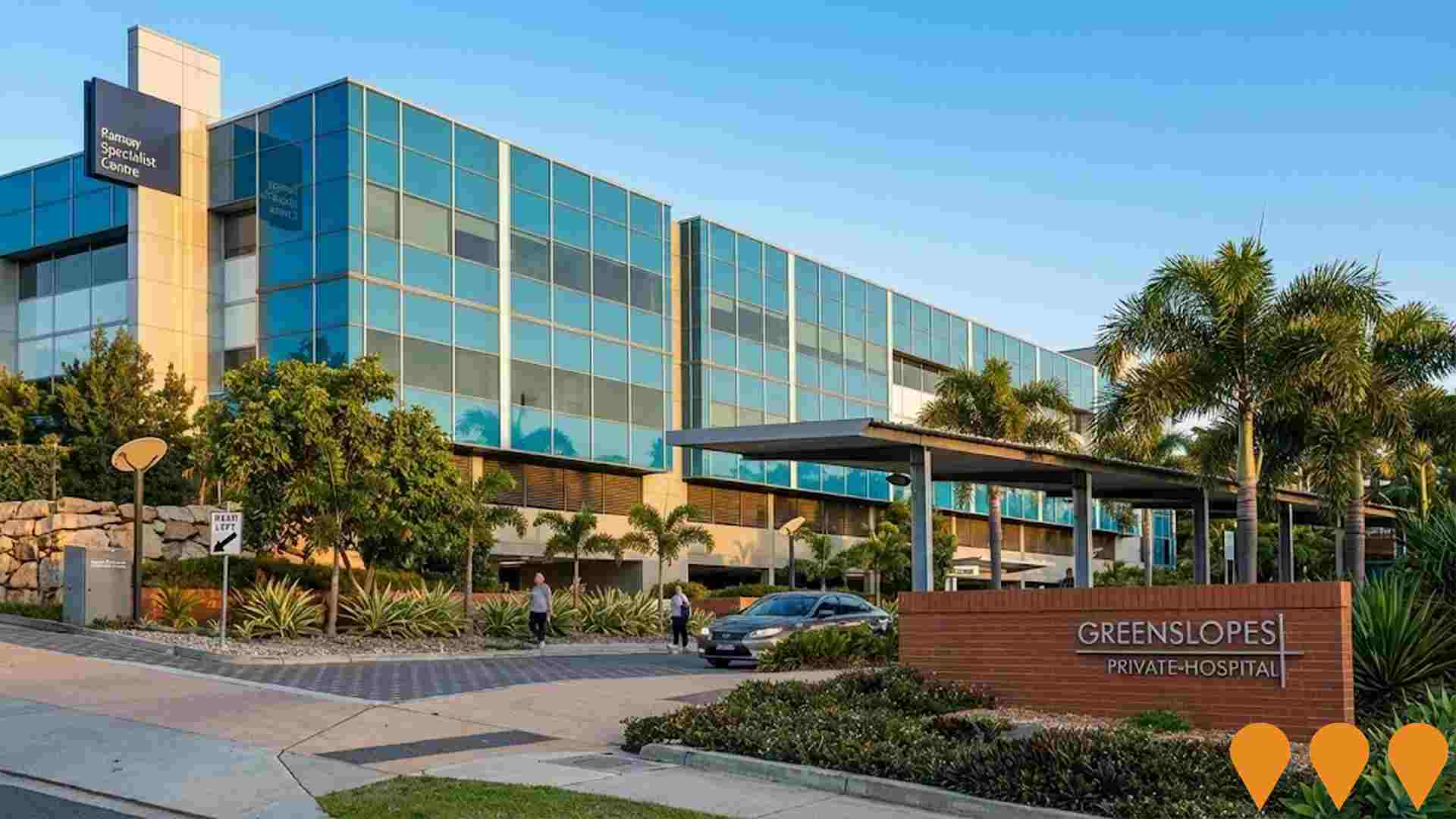
Cross River Rail - Moorooka Station Upgrade
Major upgrade of Moorooka station as part of the $7.848 billion Cross River Rail project. The station is being rebuilt to improve accessibility and functionality, including an additional (third) platform, a new station building, a new overpass with three lifts, accessible car parking, new bus bay facilities, canopies, and secure bicycle storage. Early works are underway, with major construction expected to commence in 2026.
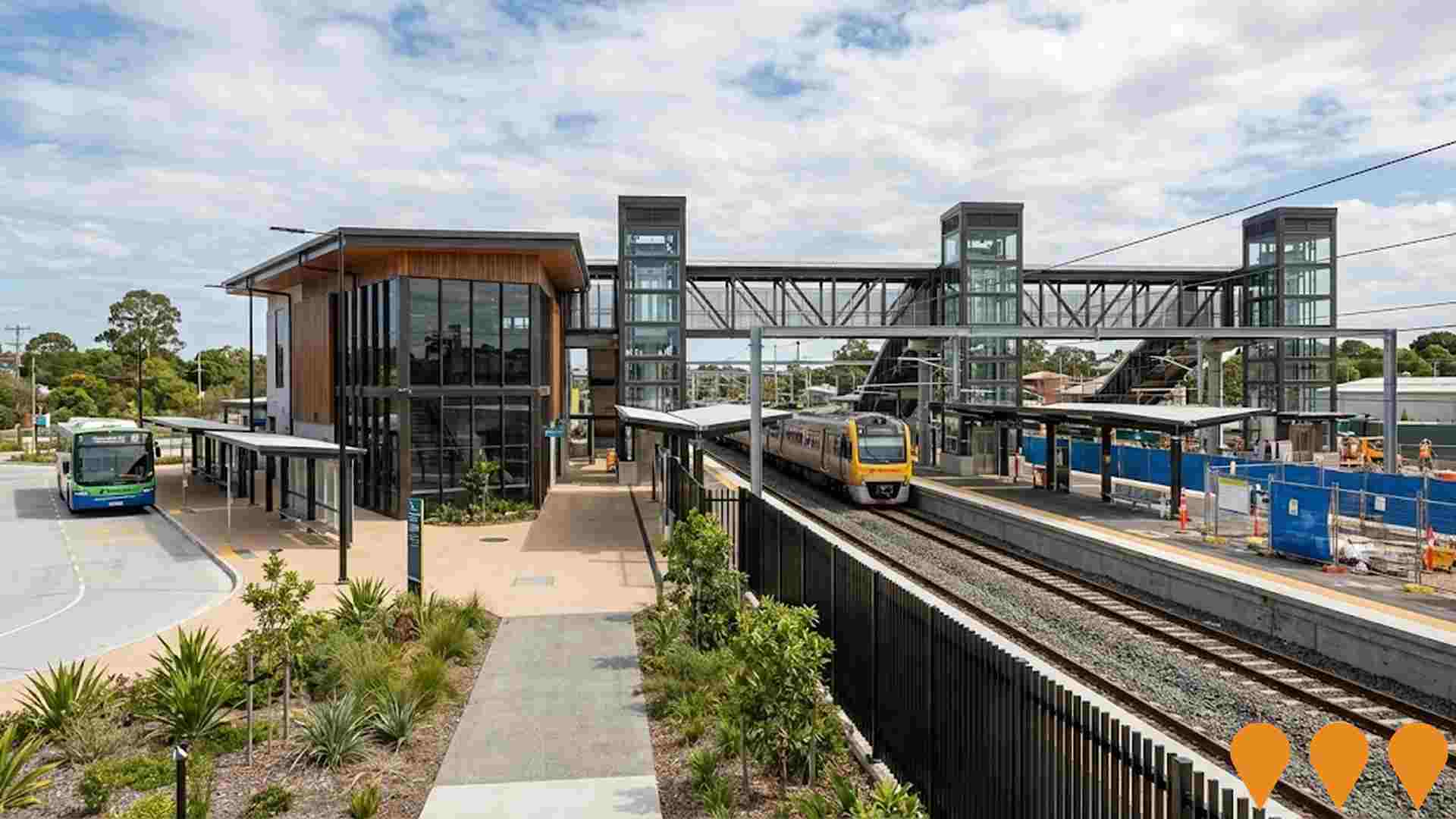
Brisbane Metro - Eight Mile Plains to Roma Street
High-frequency bus rapid transit system operating on dedicated busways. Route M1 connects Eight Mile Plains to Roma Street, featuring a fleet of 60 high-capacity electric lighTram vehicles and a new tunnel under Adelaide Street.
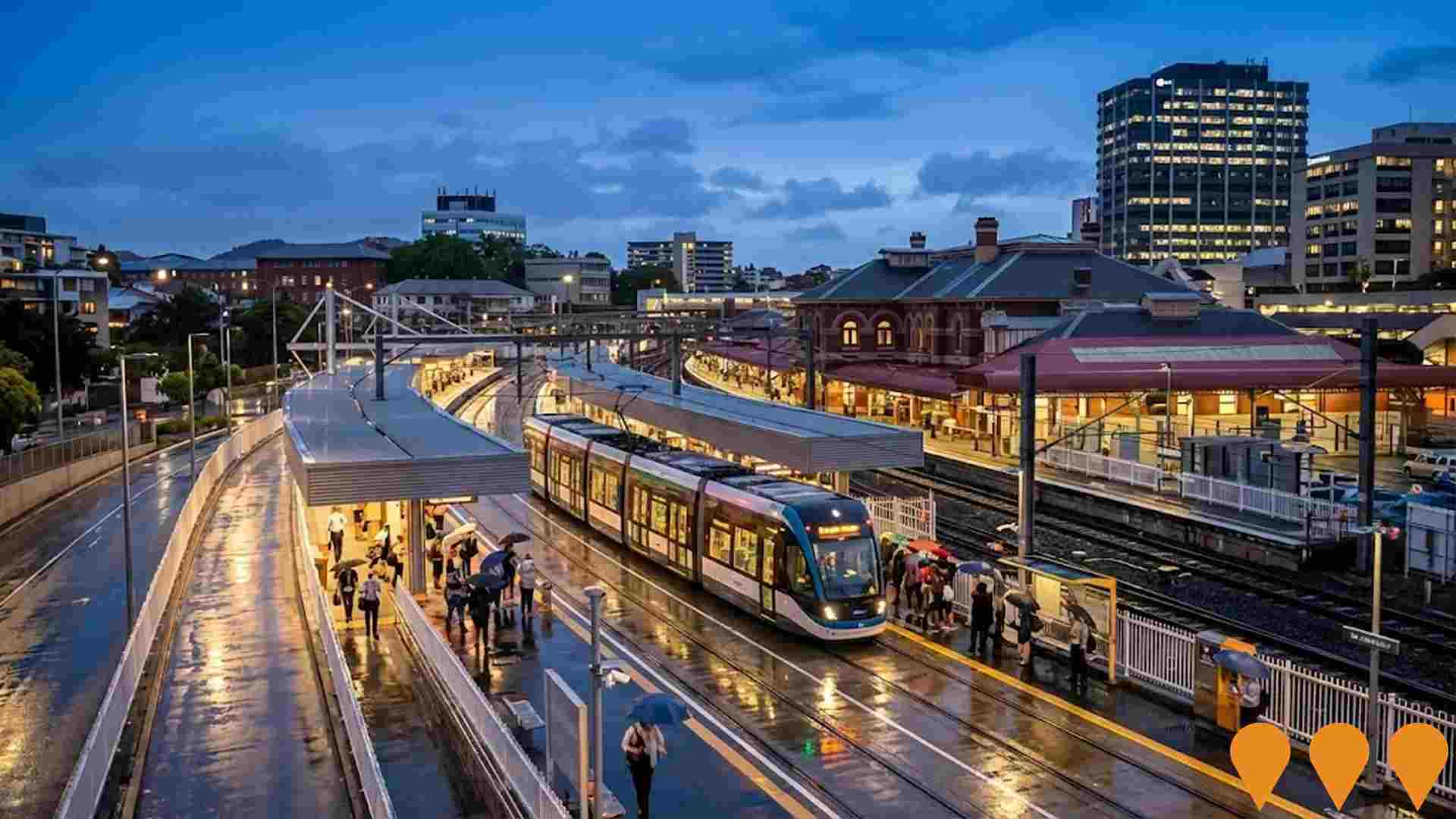
Greenslopes Mall Expansion and Refurbishment
Major program to refurbish and modernise Greenslopes Mall and to better connect it with new development around Logan Road and Plimsoll Street. The inner city centre currently provides around 9,600sqm of retail floorspace anchored by Coles and a mix of convenience and service tenants, including medical, pharmacy and food outlets, on a full block site bounded by Lottie Street, Sackville Street, Plimsoll Street and Logan Road. The centre forms the heart of the Greenslopes Mall district centre and is expected to be upgraded in stages alongside adjoining mixed use projects such as the proposed six storey health, office and gym building at 730 742 Logan Road and a childcare centre above the mall, with works aimed at improving the retail mix, internal layouts, public realm, parking access and pedestrian links to surrounding residential streets. [sources: original project record :contentReference[oaicite:0]{index=0}; category and subcategory mapping :contentReference[oaicite:1]{index=1}]
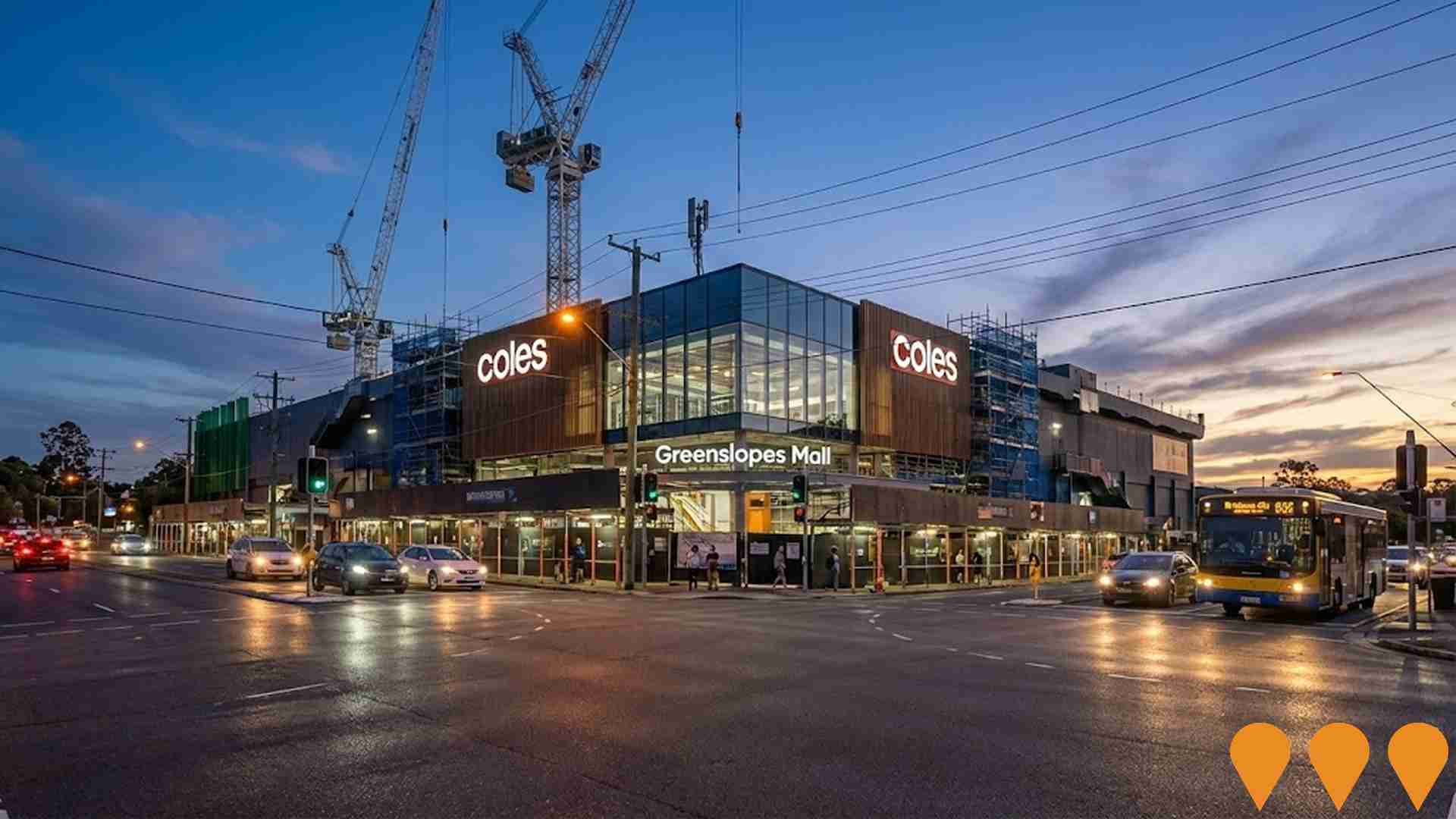
Queensland Tennis Centre Upgrade
Major upgrade of the Queensland Tennis Centre at Tennyson to host Olympic and Paralympic tennis events for Brisbane 2032. Includes a new 3,000-seat roofed show court arena, 12 new ITF-spec match courts, upgraded player facilities, and enhancements to Pat Rafter Arena and surrounding infrastructure to support larger events, high-performance training, and long-term community access.
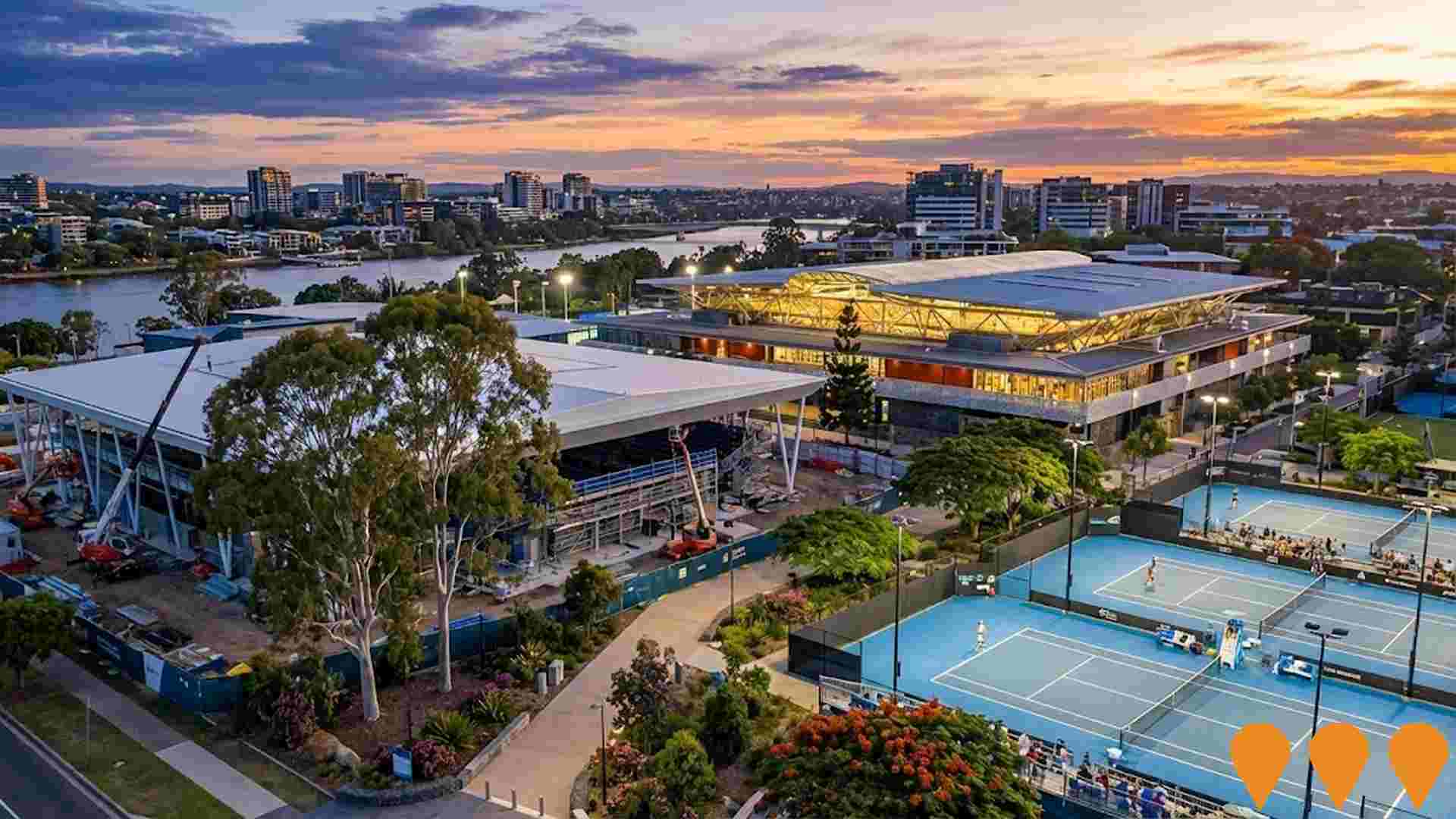
European Train Control System (ETCS)
Advanced digital train signalling system for Cross River Rail extending south to Moorooka. The $554 million expanded scope includes enhanced cyber security, integration with existing rail systems, and replacement of ageing rail assets. Removes need for trackside signals.
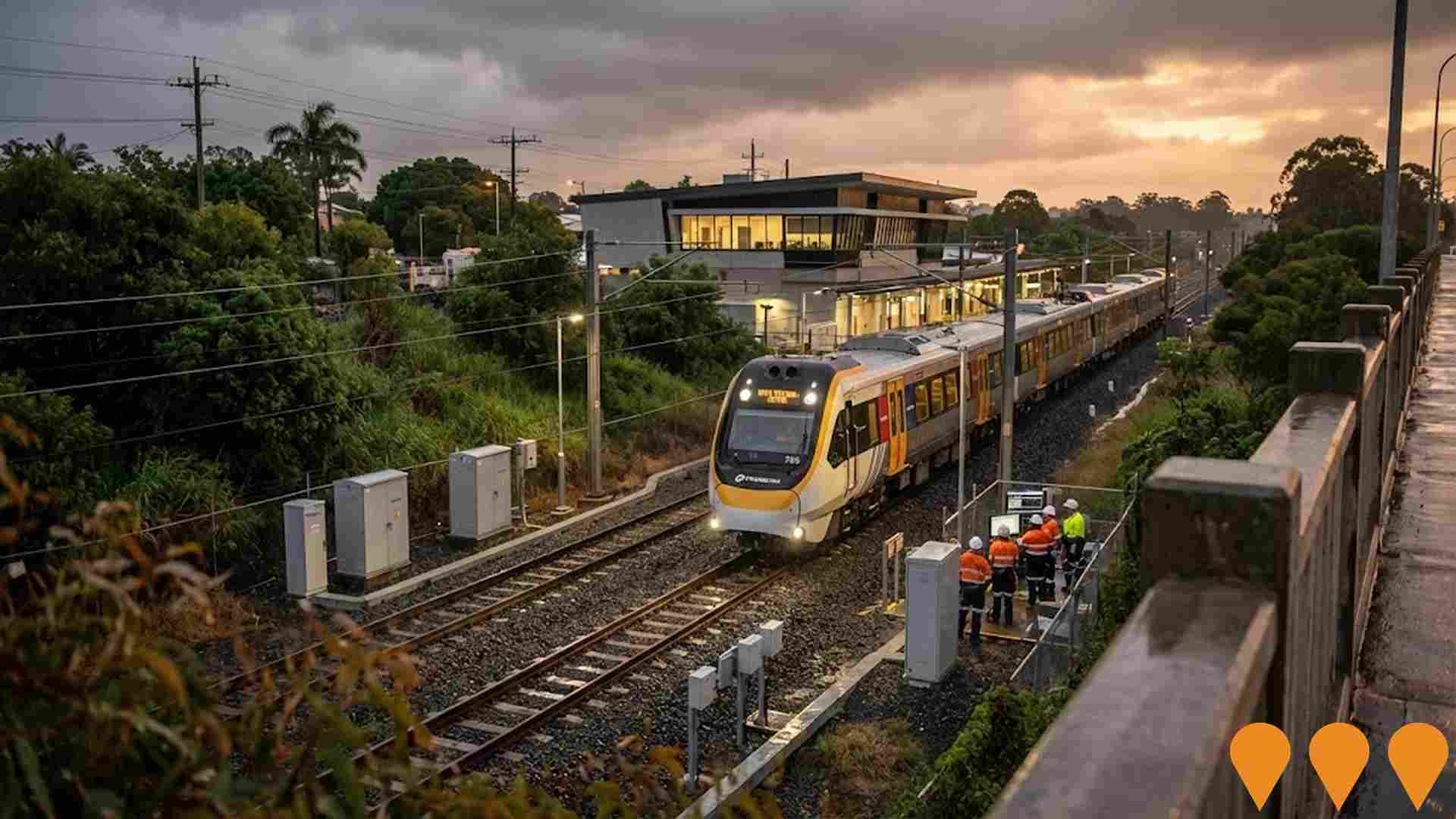
Holland Park Heritage Precinct
Council-supported heritage initiative focused on protecting and interpreting local heritage places around Holland Park through wayfinding, interpretive content and walking-trail style improvements. Aligns with Brisbane City Council heritage trails program for Coorparoo and Holland Park and leverages existing listed sites (e.g., Catt's House, Holland Park State School).
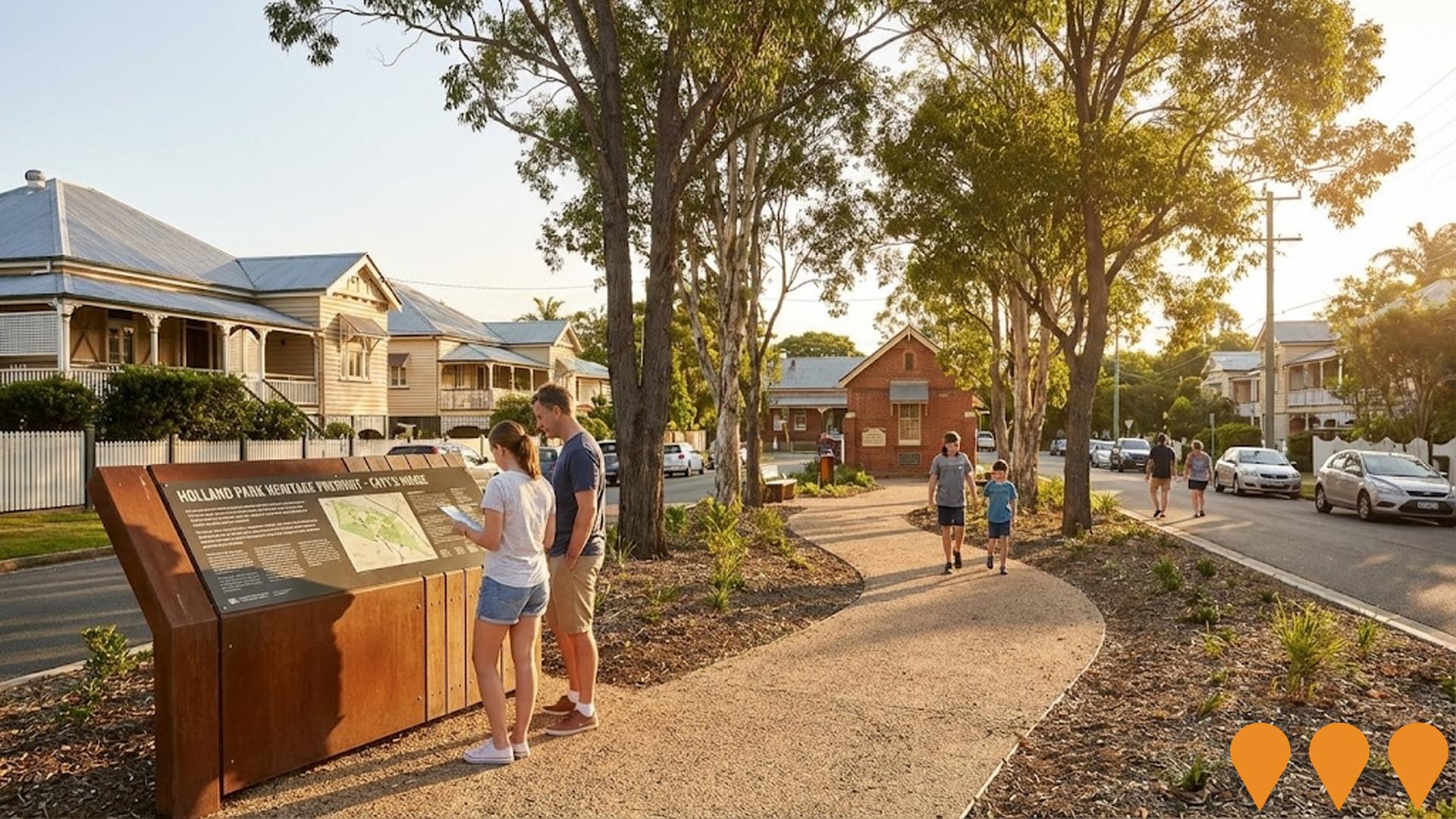
Pod Early School Holland Park
An 84-place early learning centre featuring two-storey construction with basement carpark for 20 vehicles. The facility includes 800 square metres of gross floor area with three external play areas totaling 706 square metres. The design adopts traditional Queenslander architectural character with high-quality landscaping. The centre operates as Pod Early School, providing long day care services from 7am to 7pm Monday to Friday for children from birth to school age.
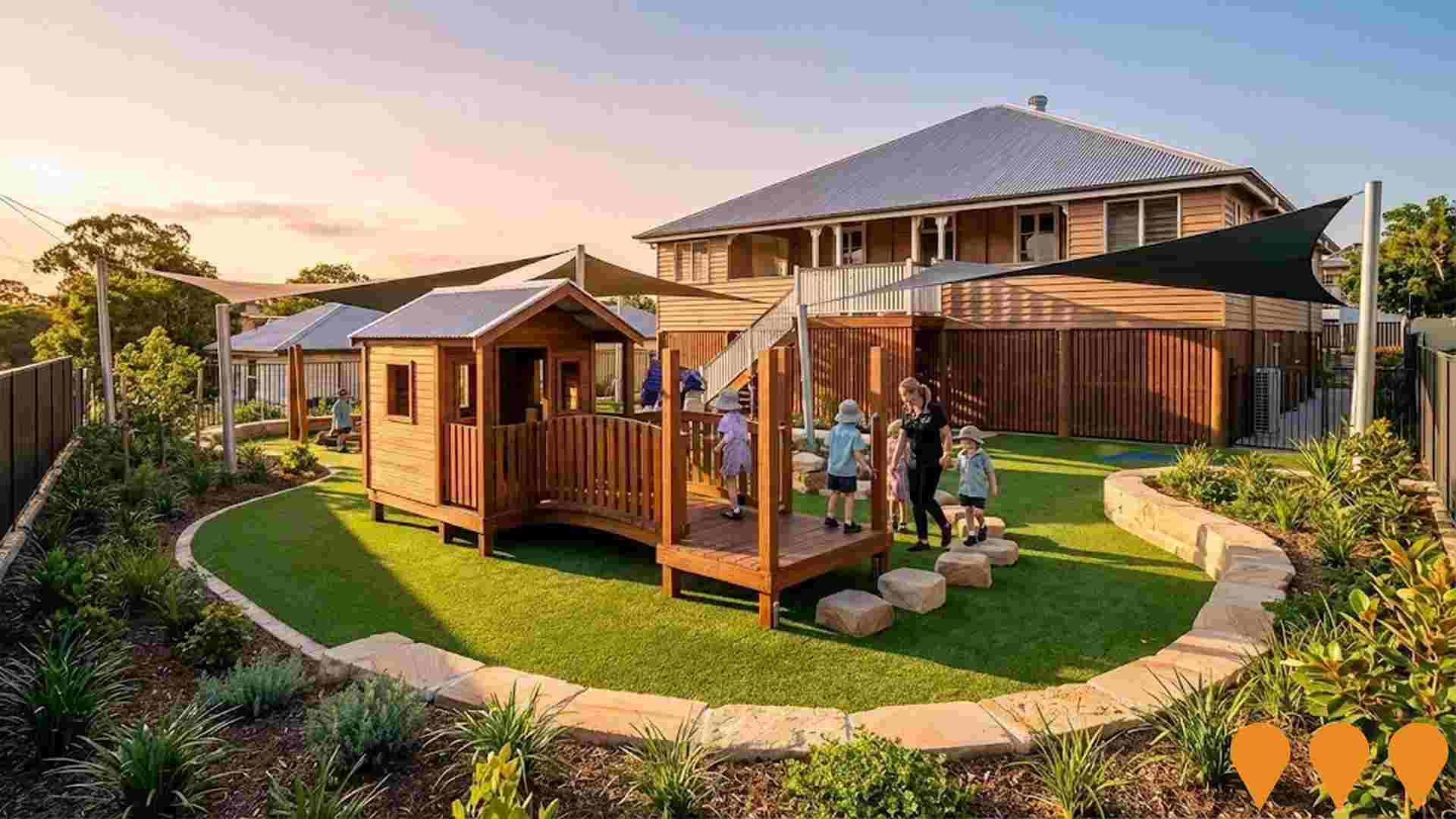
Employment
Employment performance in Holland Park West has been broadly consistent with national averages
Holland Park West has an educated workforce with professional services well represented. Its unemployment rate is 3.7%.
As of September 2025, 4027 residents are employed while the area's unemployment rate is 0.3% lower than Greater Brisbane's at 4.0%. Workforce participation in Holland Park West is high at 70.9%, compared to Greater Brisbane's 64.5%. Employment is concentrated in health care & social assistance, professional & technical services, and education & training. Notably, employment in professional & technical services is 1.4 times the regional average.
Retail trade has limited presence with 6.2% employment compared to 9.4% regionally. The area offers limited local employment opportunities as indicated by Census data comparing working population to resident population. Over the year ending September 2025, labour force levels increased by 0.4%, but employment decreased by 0.6%, raising unemployment by 1.0 percentage points. In contrast, Greater Brisbane saw employment rise by 3.8% and unemployment fall by 0.5%. Statewide in Queensland, employment contracted by 0.01% over the year to 25-November with an unemployment rate of 4.2%, closely matching the national rate of 4.3%. Jobs and Skills Australia's forecasts suggest national employment will grow by 6.6% over five years and 13.7% over ten years. Applying these projections to Holland Park West's employment mix indicates local employment should increase by 7.2% over five years and 14.7% over ten years, assuming constant population projections.
Frequently Asked Questions - Employment
Income
Income metrics indicate excellent economic conditions, with the area achieving higher performance than 75% of national locations assessed by AreaSearch
The Holland Park West SA2's median income among taxpayers was $67,494 and average income was $89,884 in financial year 2022, according to ATO data aggregated by AreaSearch. This compares to Greater Brisbane's figures of $55,645 and $70,520 respectively. Based on Wage Price Index growth of 13.99% since June 2022, estimated median income is approximately $76,936 and average income is around $102,459 by September 2025. Census data shows household, family, and personal incomes in Holland Park West rank between the 77th and 84th percentiles nationally. The earnings profile indicates that 31.1% of residents (2,098 people) earn between $1,500 and $2,999 weekly, reflecting broader area patterns where 33.3% fall within this range. Notably, 35.1% earn above $3,000 weekly. High housing costs consume 15.1% of income, but strong earnings place disposable income at the 78th percentile. The area's SEIFA income ranking places it in the 8th decile.
Frequently Asked Questions - Income
Housing
Holland Park West is characterized by a predominantly suburban housing profile, with above-average rates of outright home ownership
Housing in Holland Park West, as per the latest Census, consisted of 72.7% houses and 27.3% other dwellings (semi-detached, apartments, 'other' dwellings), contrasting with Brisbane metro's 47.7% houses and 52.3% other dwellings. Home ownership in Holland Park West was higher at 26.0%, with mortgaged dwellings at 39.1% and rented ones at 34.9%. The median monthly mortgage repayment was $2,167, exceeding the Brisbane metro average of $2,100. The median weekly rent was $390, matching the Brisbane metro figure of $390. Nationally, Holland Park West's mortgage repayments were higher at $2,167 compared to the Australian average of $1,863, while rents were also higher at $390 against the national figure of $375.
Frequently Asked Questions - Housing
Household Composition
Holland Park West features high concentrations of group households, with a higher-than-average median household size
Family households constitute 68.7% of all households, including 32.9% couples with children, 25.4% couples without children, and 8.5% single parent families. Non-family households account for the remaining 31.3%, with lone person households at 26.2% and group households comprising 5.3% of the total. The median household size is 2.5 people, which is larger than the Greater Brisbane average of 2.3.
Frequently Asked Questions - Households
Local Schools & Education
Holland Park West shows strong educational performance, ranking in the upper quartile nationally when assessed across multiple qualification and achievement indicators
Educational attainment in Holland Park West is notably high, with 45.5% of residents aged 15 and above holding university qualifications. This compares to 25.7% in Queensland (QLD) and 30.4% nationally in Australia. The area's educational advantage is evident in its distribution of qualifications: bachelor degrees are the most common at 29.8%, followed by postgraduate qualifications at 10.5% and graduate diplomas at 5.2%. Vocational credentials are also prominent, with 27.1% of residents aged 15 and above holding them, including advanced diplomas (10.4%) and certificates (16.7%).
Educational participation is significantly high in the area, with 30.1% of residents currently enrolled in formal education, comprising 9.3% in primary, 7.9% in tertiary, and 6.8% in secondary education.
Frequently Asked Questions - Education
Schools Detail
Nearby Services & Amenities
Transport
Transport servicing is high compared to other areas nationally based on assessment of service frequency, route connectivity and accessibility
Transport analysis shows 31 active stops operating in Holland Park West, all bus routes. These are served by 28 distinct routes, offering 4,374 weekly passenger trips combined. Residential accessibility to transport is rated good, with residents usually located 214 meters from the nearest stop.
Service frequency averages 624 trips per day across all routes, amounting to approximately 141 weekly trips per individual stop.
Frequently Asked Questions - Transport
Transport Stops Detail
Health
Holland Park West's residents are extremely healthy with both young and old age cohorts seeing low prevalence of common health conditions
Analysis of health metrics shows strong performance throughout Holland Park West. Both young and old age cohorts exhibit low prevalence of common health conditions. The rate of private health cover is exceptionally high at approximately 67% of the total population (4,499 people), compared to 61.3% across Greater Brisbane and 55.3% nationally.
The most common medical conditions in the area are mental health issues and asthma, impacting 8.8 and 7.3% of residents respectively, while 72.3% declare themselves completely clear of medical ailments, compared to 71.8% across Greater Brisbane. As of 2021, 13.1% of residents are aged 65 and over (880 people). Health outcomes among seniors are above average, broadly in line with the general population's health profile.
Frequently Asked Questions - Health
Cultural Diversity
The level of cultural diversity witnessed in Holland Park West was found to be slightly above average when compared nationally for a number of language and cultural background related metrics
Holland Park West had a higher cultural diversity than most local markets, with 24.4% of its population born overseas and 19.1% speaking a language other than English at home. Christianity was the predominant religion in Holland Park West, accounting for 47.7% of the population. The 'Other' category showed slight overrepresentation at 1.2%, compared to 1.1% regionally.
The top three ancestry groups were English (24.9%), Australian (22.0%), and Irish (10.4%). Notably, Korean (0.7%) and Greek (2.0%) populations were higher than the regional averages of 0.6% and 1.5%, respectively. New Zealanders also had a slightly higher representation at 0.9%.
Frequently Asked Questions - Diversity
Age
Holland Park West's population is slightly younger than the national pattern
Holland Park West has a median age of 36 years, equal to Greater Brisbane's but younger than the national average of 38 years. The age group of 35-44 is strongly represented at 17.3%, compared to Greater Brisbane, while the 65-74 cohort is less prevalent at 6.7%. Between 2021 and present, the 35-44 age group has increased from 16.5% to 17.3% of the population. Conversely, the 65-74 cohort has decreased from 7.5% to 6.7%. By 2041, forecasts indicate significant demographic changes for Holland Park West. The 75-84 age group is projected to rise substantially by 161 people (54%), from 301 to 463. Notably, the combined 65+ age groups will account for 52% of total population growth, reflecting the area's aging demographic profile. In contrast, both 0-4 and 5-14 age groups are expected to decrease in numbers.
